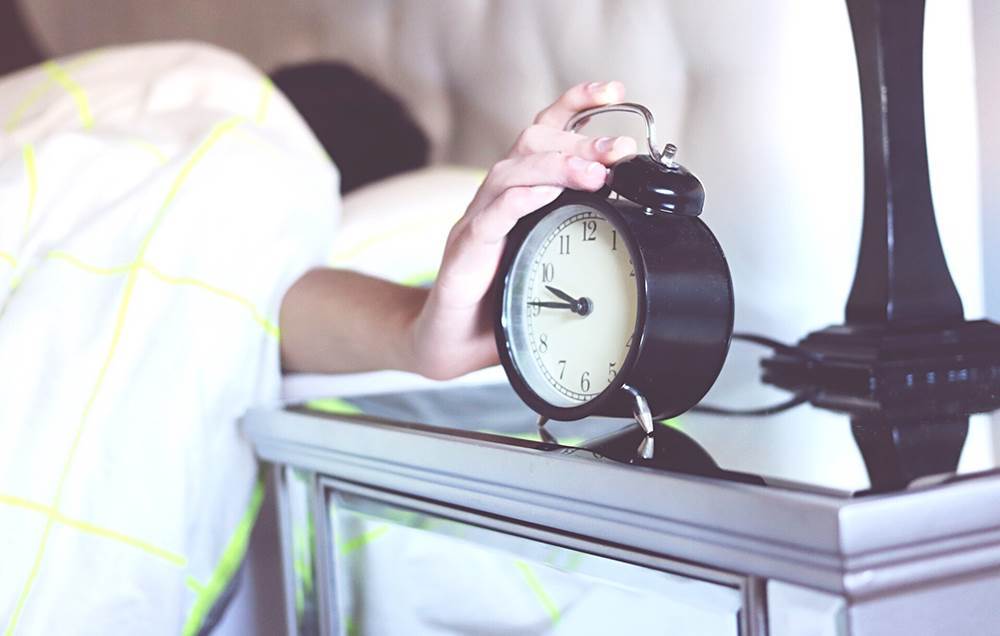For better or for worse, here's how your bedtime rituals impact your relationship.
Your sleep habits affect your marriage more than you might think. Something as seemingly innocuous as waking up to pull back your share of the covers can leave you tired and cranky the next day—and more frustrated with your spouse. Sleep has long been tied to mood and behaviour, but new research is examining how our habits might affect our marital relationships.
The news isn’t all bad: There are many positive impacts that sleep habits can have on a relationship, including increased feelings of intimacy. One study of 29 heterosexual couples even found that a good night's sleep increased reports of men treating their wives well, which in turn helped the women get better shut-eye.
Good or bad, though, the effects of your bedtime rituals can last for the long term, which means habits like snoring or cuddling at night have power over the way you relate to one another during the waking hours. While there’s no one formula for couples when it comes to sleeping, figuring out what works for both of you may help you sleep better and strengthen your relationship. Consider these six surprising ways your sleep habits can affect your marriage:






Cuddling may lower your anxiety.
Snuggly babies and puppies may be onto something. Sleeping under the same covers can bring great joy, research suggests. A 2010 study found that couples who cuddled in bed might experience lower levels of anxiety and increased feelings of security. The benefits carried over with couples feeling greater levels of intimacy during the day, creating a cycle of good feelings and good sleep.Getting 7 hours of sleep defuses conflict.
Not all conversations between couples are easy. Whether you're deciding whose family to visit during the holidays or who will pick up the kids from school, keeping a cool head is key to navigating shared decisions without fighting. When one partner gets seven full hours of sleep at night, they’re more easily able to regulate their emotions, which improves the couple’s ability to work through high-pressure conversations. That's what researcher Stephanie Wilson found when she studied the impact of sleeplessness on relationships. “Couples were more hostile to one another only if both partners had slept less than the recommended amount of the 7-hour benchmark," Wilson says. "A well-rested partner helped to neutralise the disagreement despite the other’s lack of sleep.”
Late-night TV can make you less interested in your spouse.
Staying up late to binge-watch your favourite Netflix show may be more costly than you know. Research has linked getting too little sleep to loss of interest in partners. Neurologist Dr Jocelyn Cheng says loss of interest is also a common symptom of depression, which studies have also linked to sleeplessness. The exact brain mechanism for why this happens is unknown, but mood-affecting neurotransmitters like dopamine, norepinephrine, and serotonin may play a role. If you or your spouse is experiencing loss of interest in the relationship, you may want to turn off the TV a little earlier at night and try to get more shut-eye.
Sharing a bed can make you healthier.
Sleeping next to your spouse doesn’t only feel good, it inspires you to take care of each other. In the same study that found cuddling reduces anxiety and fosters intimacy, researchers found that if one partner suffered from sleep apnoea, they were more likely to use their CPAP machine due to their spouse’s urging, providing increased health benefits for that individual.Restless nights may fuel bickering.
While there are many health benefits to sharing a bed, it isn’t the best option for all married couples. Co-sleeping couples have a 50% increase in likelihood that one of them will be woken up at night, effectively guaranteeing a bad mood the next day. A 2013 study found that as a result of a bad night’s sleep, couples reported appreciating each other less the next day. Bickering with your spouse may have more to do with whether or not they're a covers hog than if they forgot to vacuum.










